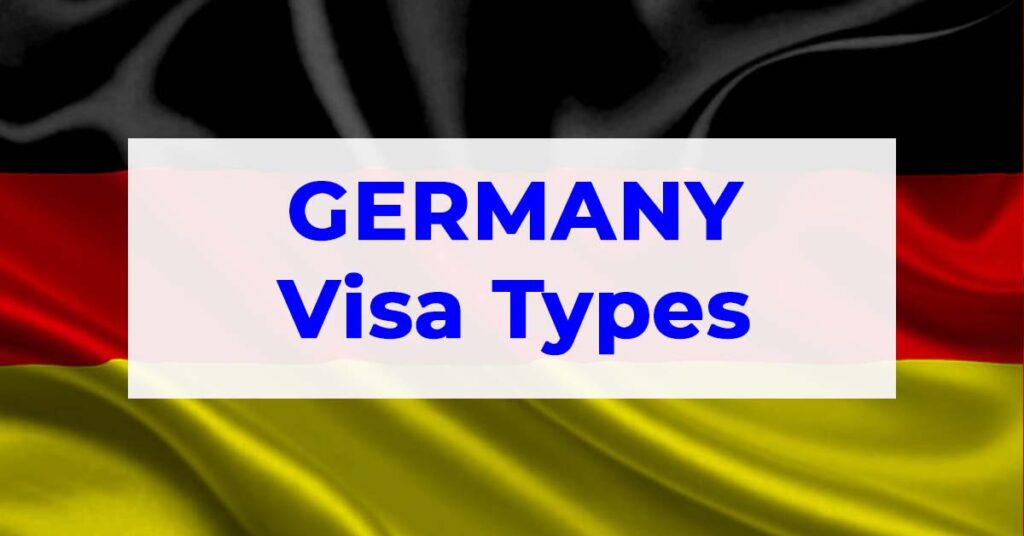Germany’s visa system caters to various needs, whether you’re aiming to tour, study, work, or live permanently in the country. This guide elaborately details each visa type, aiding you in identifying the right visa for your German adventure.
Table of Contents
Tourist & Visitor Visas
Schengen Visa (Tourist/Visitor):
This visa allows you to explore Germany’s rich history, culture, and landscapes. It’s perfect for short stays up to 90 days within a 180-day period. Tourists can experience Germany’s famous cities, castles, and festivals. Applicants must show proof of accommodation, travel insurance, and financial means.
Business Visa:
Tailored for business professionals attending meetings, conferences, or establishing business contacts in Germany. This visa doesn’t permit employment in Germany but is key for global business networking. Applicants need an invitation from a German company and proof of their business activities.
Study & Language Learning Visas
Student Visa:
Essential for those admitted to German universities. It allows you to live and study in Germany for the duration of your course. Germany’s high-quality education system and research facilities make it a top destination for international students. Applicants need proof of university admission and financial sustainability.
Language Course Visa:
For those attending a German language course. This visa is a great opportunity for language immersion and cultural exchange, especially if you plan to study or work in Germany later. The visa duration matches the course length.
Also read
Work Visas
Employment Visa:
For professionals with a job offer in Germany. It’s a pathway to experience working in one of Europe’s strongest economies. Applicants need a job offer and, in some cases, approval from the Federal Employment Agency.
Job Seeker Visa
Unique to Germany, this visa allows skilled professionals to enter Germany to seek employment. Valid for six months, it’s an excellent opportunity for those looking to start their career in Germany. Applicants must have qualifications recognized in Germany and show proof of financial resources.
Blue Card EU:
For highly skilled non-EU professionals in sectors like IT, engineering, and science. It requires a higher education degree and a job offer with a certain minimum salary. It’s a fast track to permanent residency for top-tier professionals.
Family Reunion Visas
Family Reunion Visa:
For family members of German residents wanting to live together in Germany. It applies to spouses, children, and sometimes other family members. Applicants must prove their relationship and the resident’s ability to support them.
Freelancer & Artist Visas
Freelancer Visa:
For individuals planning to work as freelancers or self-employed in Germany. It’s ideal for artists, writers, and other freelancers. Applicants must demonstrate a viable business plan and potential clients in Germany.
Special Purpose Visas
Working Holiday Visa:
Available for young people from certain countries. It allows you to travel and work in Germany for up to a year, providing a blend of cultural exchange and work experience.
Training/Internship Visa:
For those undertaking professional training or internships in Germany. It’s a stepping stone for professional development in a German work environment.
Long Stay Visas
National Visa (D-Visa):
For longer stays in Germany, like long-term studies, employment, or family reunion. It’s the first step towards residency in Germany for those planning an extended stay.
Refugee and Asylum Seeker Visas
Asylum Application: Individuals who flee their home countries due to persecution, war, or other serious threats can apply for asylum upon arriving in Germany. The process involves registering, an interview to explain their situation, and a decision made by the Federal Office for Migration and Refugees (BAMF).
Protection Statuses: Depending on their circumstances, asylum seekers may be granted different types of protection, such as refugee status, subsidiary protection, or a ban on deportation.
Rights and Integration: Recognized refugees are supported in integrating into German society, with access to language courses, employment, and education.
Appeal Process: If an asylum application is rejected, there’s a legal process to appeal the decision.
Dublin Regulation Compliance: Germany adheres to the Dublin Regulation, determining which EU state is responsible for processing the asylum application.
End Note:
Each visa type in Germany has specific requirements and purposes. We would advise you to always refer to the official German Embassy or Consulate website for the most current and detailed information.
https://www.auswaertiges-amt.de/en/einreiseundaufenthalt/visabestimmungen-node
This guide provides a comprehensive look at German visa types, making it easier for you to navigate the complexities of German visa applications. Accurate and up-to-date information is key, so be sure to consult official sources.

